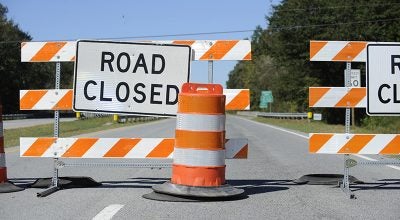Community Farm Promoted in Tyrrell County
Published 2:19 pm Tuesday, November 11, 2014
Community can mean many things to many people.
For some it means shared emotional connection.
For others, it is a group of people who live in the same area or zip code as they do.
Yet for others, it means shared ideas and values.
Christopher and Alisa Lucash are starting a project called Sparkroot Farm Co-op located at 57 Rabbit Run Lane in Columbia that aims to put community ideals into action.
The project has been in development for several years now.
“We moved to Columbia in 1998 for my husband’s work. We expected that we would stay for a short period of time. We did not start having any vision for this place until about 2008,” said Alisa.
The project site spans 6 acres with a variety of activity.
“We have goats, a horse, a donkey, rabbits, chickens, and we grow our own vegetables,” said Alisa.
Sparkroot Farm can expand with logistical and monetary support.
“Because I want it to be a co-op situation,I am open to anything that comes along that’s fits with our mission,” said Alisa.
For example,Alisa mentioned employing aquaponics, a food production system that combines conventional aquaculture (raising aquatic animals such as snails, fish, crayfish or prawns in tanks) with hydroponics (cultivating plants in water) in a symbiotic environment.
“There is a building out there and it used to be my chicken house. We were going to turn it in a greenhouse. But if we used aquaponics, there are 275 galloon containers where tilapia could grow. The tilapia need their water filtered, but it is actually filtered by the roots of the plants that you grow. You can grow the plants in grow beds with pebbles in them,” said Alisa.
The water goes from the tank to the grow beds and its raises and fills up the grow beds. It then drains away from the roots so the roots can get air.
“The roots filter the water and then the water goes back clean to the fish. So you can grow fish and vegetables and it can be off-grid,” said Alisa.
Employing aquaponics on the Sparkroot Farm site is something that could involve a group of people on the Sparkroot Farm site.
“The person in charge of the aquaponics project could lead classes and have people coming from wherever. There could be a weekend class on how to set up an aquaponics system,” said Alisa.
The food from a potential aquaponics facility could be sold in the area and to markets on the Outer Banks.
“Also on the land we have right now, I am growing food for us. But I am hoping there are people that want to come out and work in the garden and share time together. If someone to get into creating a CSA or market garden, then lets do it,” said Alisa.
Alisa and her family grow season vegetables in their garden. Everything is mulched so there is no weeding to do.
“We rake the leaves out of the back pasture so that we can use them for mulch. We keep the soil covered and moist to help with growth,” said Alisa.
Right now people have heard about Sparkroot through friends and word of mouth.
But Alisa has plans in the future to incorporate Sparkroot as a possible nonprofit or similar organization.
Getting people involved in the idea of a community farm is a key step.
An area resident is coming with her family soon to Sparkroot to hold a Mexican style celebration with the Lucashes.
“We will make tamales and tacos,” said Alisa.
The idea of community also has to go catch on as well.
““When you grow up in this country, you buy this idea that we all need to be self-sufficient and independent, nobody wants to really rely on anyone else. Then you get out here working the land alone and you realize it is impossible to get everything done alone. Logistically it is does not work,
It’s also boring and isolating to work alone.Many hands make light work and more enjoyable work. Tragically the small family run farm and mutually reliant community has largely been lost in America as we rely more on corporations and trucking companies than our local economy for what sustains us. I believe we are here on this land so we can connect with others: I believe we are here on this land so we can connect with others:barter,trade, share knowledge, operate free markets and rediscover ancestral skills so they are kept alive for our children. One day the cheap oil will become unaffordable.
Everything is getting more expensive.It’s up to us to build more healthy soils, self sufficient yet connected communities, build local economies, and keep alive ancestral skills. One day we will really need them and we do not need to reinvent the wheel. It would tragic to allow them to be lost when we really need them, ” said Alisa





